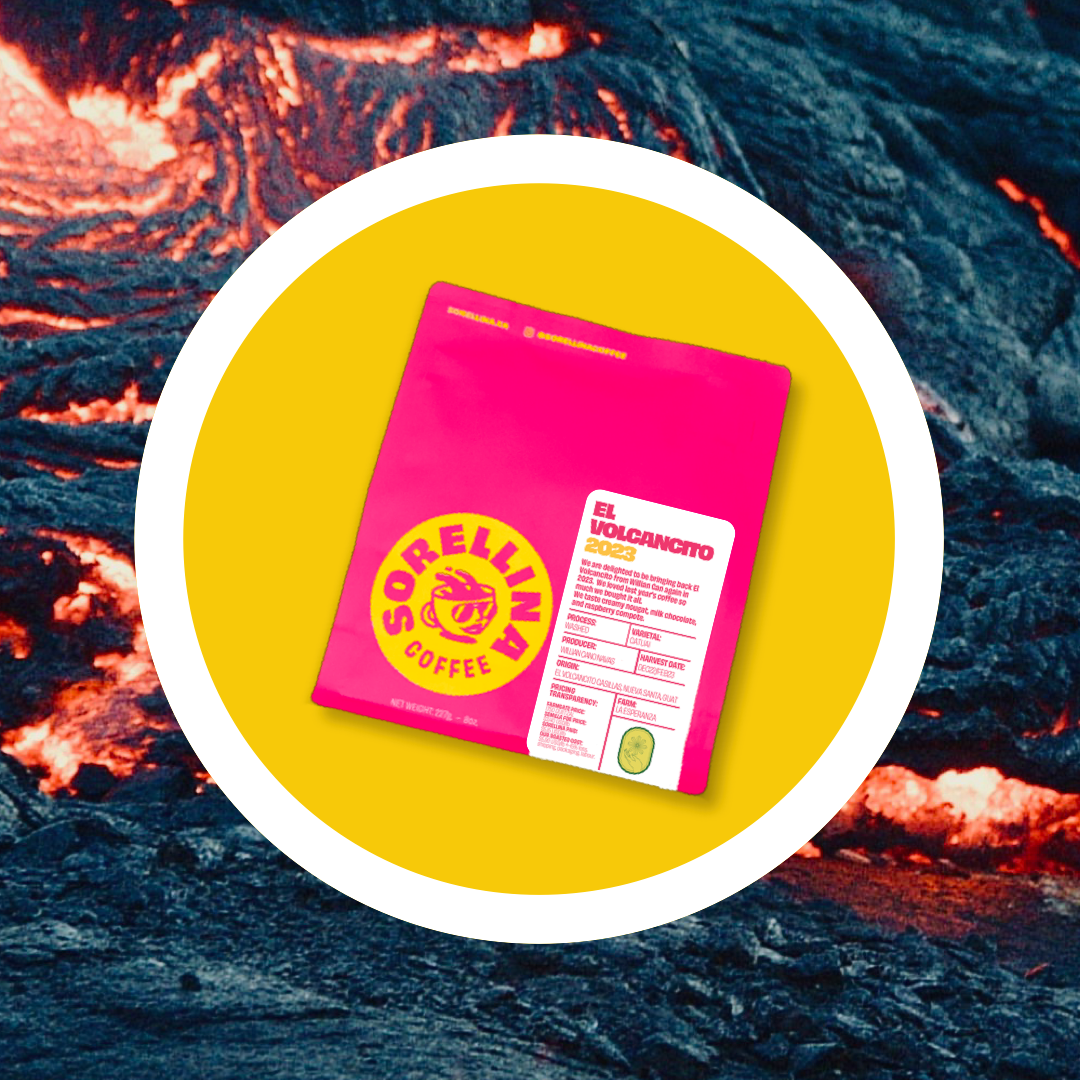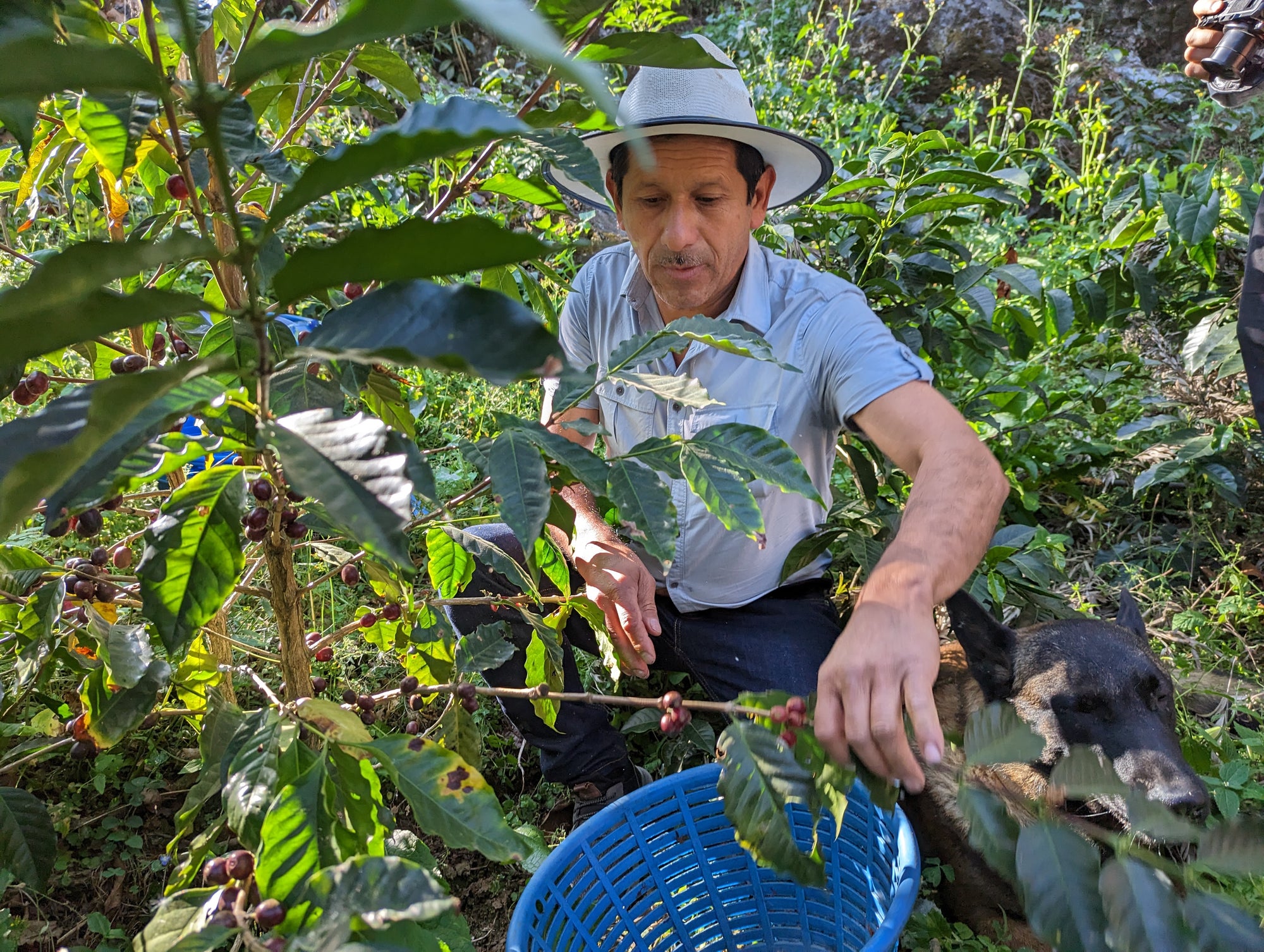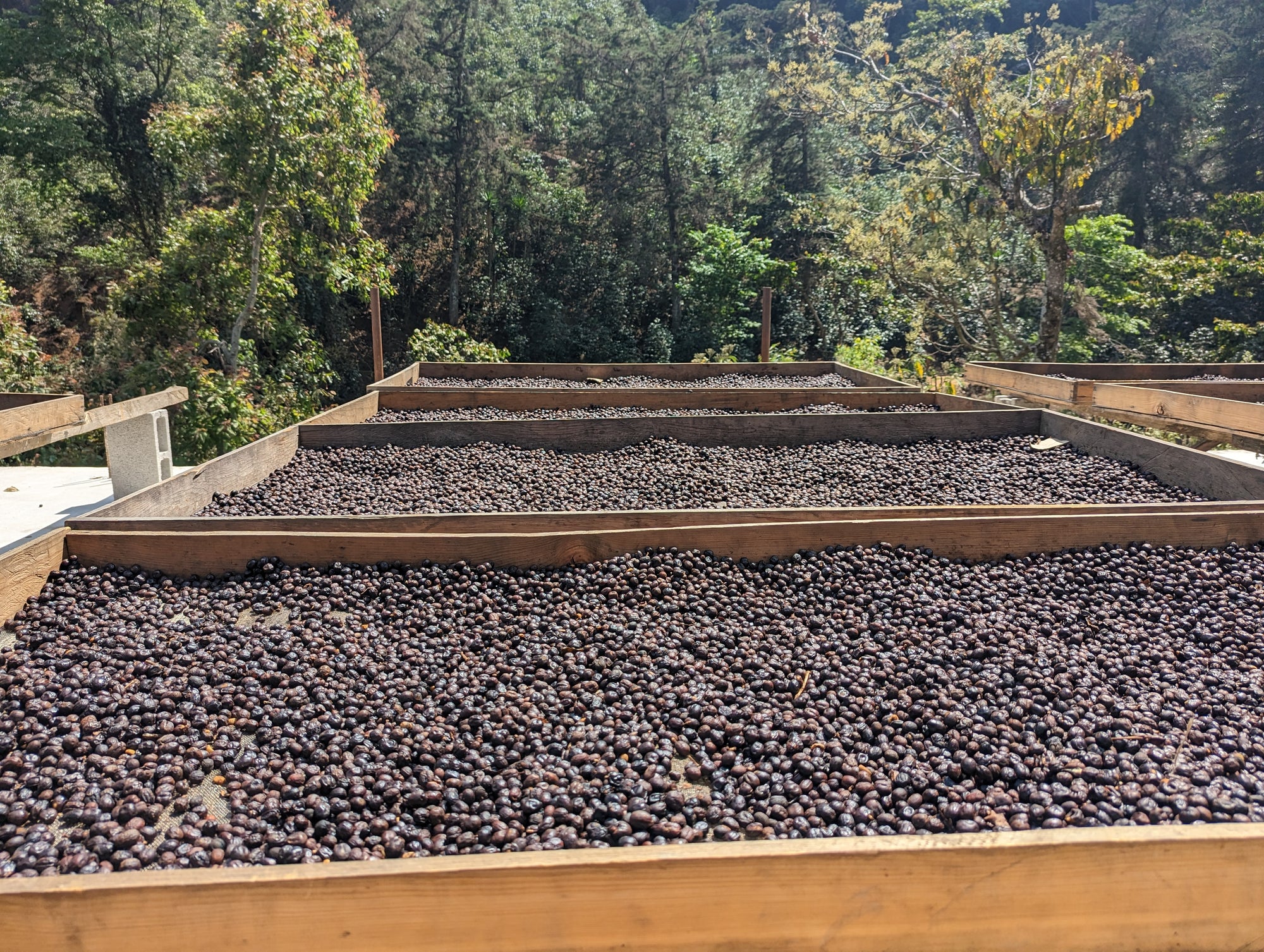El Volcancito - Pache/Catuai, Washed, Guatemala
Regular price
Unit price
per
This is the fourth year that we have purchased from Willian and his family. We are always proud to serve his coffees, they are cozy, comforting, and consistently delicious! Willian has been growing coffee his entire life, the farm being passed down over generations. Located just south of Casillas, this remote area of Guatemala is populated almost entirely by Xinka coffee growers. Just last year, Willian joined his fellow smallholders in the Cafe Colis Resistencia, a group of Indigenous Xinka coffee producers in Mataquescuintla working together to develop an international market for their coffees, with the goal of receiving fair prices for their hard work and dedication. For more information about Cafe Colis Resistencia and Willian, check out our pals at Semilla Coffee Imports.
We taste nougat cream, brown sugar, and cranberry.
Producer: Willian Orlando Cano Navas
Farm: La Esperanza
Origin: El Volcancito Casillas, Nueva Santa Rosa, Guatemala
Varietal: Pache San Ramon & Yellow Catuai
Process: Washed
Altitude: 1650 MASL
PRICING TRANSPARENCY ($/lb)
FARMGATE PRICE: 1750 QUETZAL
SEMILLA FOB PRICE: $3.56USD/Ib
SORELLINA PAID: $5.15 USD
About Cafe Colis Resistencia - From our pals Brendan and Pat at Semilla Imports
Cafe Colis Resistencia is the name created by Alex Reynoso to identify coffee-producing members
of the Indigenous Xinka community around Mataquescuintla who are interested in developing an
international market for their coffee, and therefore finally receiving fair prices for their work. The
name Colis is a nickname for Mataquescuintla due to its fame for producing cauliflower (coliflor or
Colis)
Within Mataquescuintla and the area, nearly 90% of the population identifies as a coffee
producer. Yet, almost none of these producers have access to a market beyond selling in cherry to
local intermediaries or to large farms that process their coffee and sell it as blended lots to their
international market.
While theoretically the price of cherry is decided according to the New York Stock Exchange
coffee commodity price, really anything goes for these buyers. As producers have little to no
option, they simply sell to whoever they can and accept whatever price is offered.
In recent years, of course, things have changed. Since last year and into this year, the market price
has shot up due to a confluence of factors from climate change-related crop decline to logistics
disruptions. As we’ve said many times over, the fact that prices are higher is a good thing
however, due to the rampant pace of global inflation - and especially in Guatemala where
inflation was up to nearly 10% throughout 2023 and stayed at Seoul’s 5% for most of 2024 -
many farmers didn’t see this price boost as a profit windfall but as the same but different.
To put into context what it means for prices to “go up” locally, we often heard over the last three
years prices as low as 115-130 Quetzal for 100 pounds of cherry. Taking a yield factor of 1:4.5
- 1:5, that equalled 585 - 650 Quetzal per quintal of parchment coffee, which is roughly 0.82
USDD/lb.
Now, local market prices have pushed up to around 1100 Quetzal, sometimes peaking at 1300
Quetzal. Still, specialty prices remained not much higher than this in most cases further
disincentivizing costly investment in quality.
Aside from an inflating market, the same structures we’ve seen since day one continue to pervade
for smallholders in Guatemala, and the smallholders we work with continue to receive little or no
support from their country as regards their coffee production.
Indeed, Guatemala’s history of coffee production has always erred to the support of major
landowners of European or Mestizo descent and relied upon the forced labour of Indigenous
people to claim its place as one of Central America’s largest coffee producers (Read more about
the mandamiento system.). This violent and painful system leaves its vestigial remains in the
monopoly that exists today — in short, a system of production and export in which the
government supports major landholders while holding back resources and access to small
producers such as those in Mataquescuintla.
This monopoly not only keeps producers away from the market access they need for truly
sustainable prices, but it also keeps them away from technical assistance and education that could
propel them forward. As such, producers like Juan are left to fend for themselves in this incredibly
challenging transition from a lifetime of selling in cherry to processing and drying their coffee for
sale as micro-lots. This lack of assistance is only underscored by the closure in the last few years of
Anacafe’s technical assistance office in Mataquescuintla. Despite being one of the highest altitude
areas in Guatemala, with some of the highest potential quality for coffee, Anacafe chose to
remove themselves citing in part the protests against the mine.



